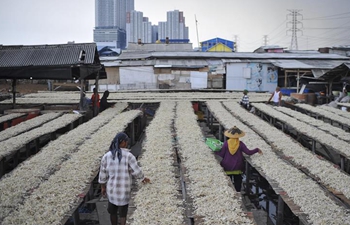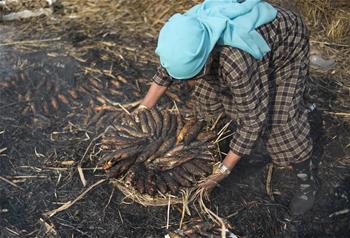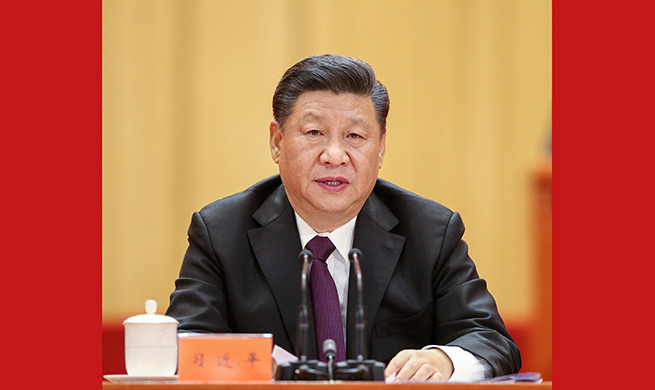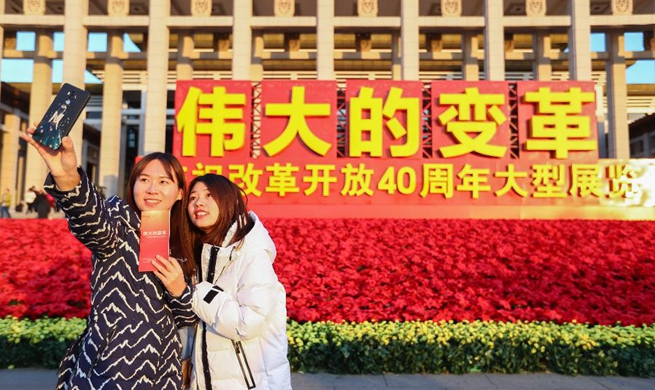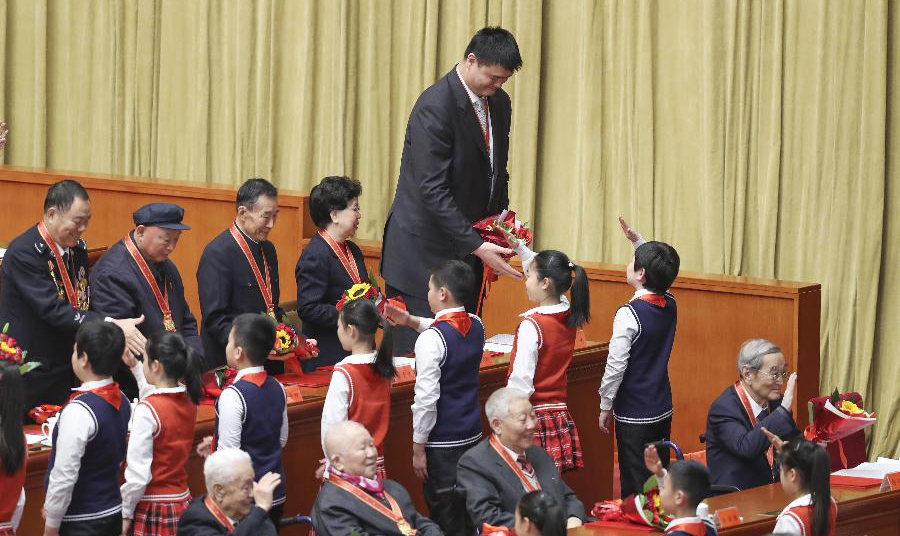By Levi J Parsons
SYDNEY, Dec. 19 (Xinhua) -- As Australia's financial industry collectively sits back in their most comfortable chair this Christmas to savor a much-needed holiday brandy, they will no doubt be wondering what 2019 has in store for the country's economy.
Despite almost three decades of consecutive economic growth with an excess of wealth in resources, services and tourism, Australia's resilience may be put to test next year after a tumultuous 2018 period that saw lending tightened, the real estate market plummet, and the Reserve Bank of Australia (RBA) miss its modest inflation and GDP targets by miles.
WHAT LEADS TO HOUSING MARKET DOWNTURN
In hindsight, the year probably has not got off to the most ideal start in 2018, with a full-scale Royal Commission Inquiry launched into the banking sector to investigate corrupt and unethical practices in the financial industry.
"There were allegations of wide-scale misconduct being reported to the regulators and the banks were apparently not complying with the laws," Capital Economics economist Marcel Thieliant told Xinhua on Wednesday.
Noting that while the hearings which are still ongoing have caused the country's financial institutions to reel in their lending practices, adding to steep falls in Australia's real estate markets, Thieliant said many other factors are also at play.
"I wouldn't blame the Royal Commission entirely for the slow down in the housing market," he explained.
"I think measures introduced by the Australian Prudential Regulation Authority (APRA) which specifically targeted the housing market were probably more responsible for the down turn."
"We had a cap on interest only loans and a cap on investor lending and these measures have resulted in a very visible increase in interest rates on interest only loans, which has discouraged investors and caused growth in lending to investors to basically slow to a crawl."
As a result, the tightening lending conditions sent shock waves through Australia's already overcooked capital city real estate markets.
Sinking at an annualized rate of around 10 percent nationally, Macquarie Securities economists Justin Fabo and Ric Deverell expect Sydney and Melbourne dwelling prices to fall by "15-20 percent" from peak to trough.
While this could have significant implications for Australia's economy and potentially puts its 28-year-run of consecutive growth in jeopardy, Thieliant said it "probably won't be catastrophic."
"It will result in softer growth but not a recession, he said. "But it is likely to result in a big drop off in household wealth which we think will have a big impact on consumer spending in 2019."
STOCK MARKET MELTDOWN
While Australia has had its own domestic economic conditions to deal with, global economic conditions have also made things difficult down under.
Fearing further tension in the U.S.-led trade conflict, Aussie shareholders fled the stock market wiping off the last two years of gains on the ASX index.
"We are down almost 500 points or 8 percent," CMC Markets chief market strategist Michael McCarthy told Xinhua.
"The negative performance this year reflects a number of local and international factors with concerns about the global growth scenario weighing on markets around the world."
"Whether that is things like Brexit, trade disputes or a lack of fiscal stimulus in the United States, those concerns around growth remain."
On top of this, a slide in industrial metals and other commodities, lacklustre domestic economic data and a substantially weakened Aussie dollar have also acted to cool investor sentiment.
According to McCarthy, the volatility seen this year on the Australian share market "is likely to continue well into 2019."
RECORD LOW INTEREST RATES COULD BE CUT FURTHER
While most economists believe Australia's cash rate will remain where it has since August 2016, at the record low of 1.5 percent, some are actually predicting the central bank may be forced to cut interest rates in 2019.
At the beginning of the year, the RBA sighted a 3.5 percent rise in GDP and a 2-3 percent lift in inflation as its targets for 2018. However, in the Australian Bureau of Statistics (ABS) third quarter readings, the numbers came in well below expectations.
During the first nine months of the year GDP has only risen 2.2 percent, while Australia's underlying inflation, according to the ABS Consumer Price Index, has managed an annual lift to September of just 1.75 percent.
For this reason, as well as stagnant wage growth and soaring levels of household debt, some say it's perhaps more likely the next interest rate move will be lower rather than higher.
"I think it is unlikely. However, if the housing downturn turns into a slump and there is rising unemployment and rising loan defaults then the bank may look to react," Thieliant said.
BRIGHT SIDE
While the doom and gloom may continue into 2019, there could still be some positives for Aussie workers.
"The labour market will still be pretty good," Thieliant said.
"Surveys suggest job growth will be quite strong and that the tightening of the labour markets in the last years has resulted in a pick up in wage growth, so I think for households the situation is improving."
"More people will be able to find jobs and wages should steadily start to lift further," he added.
APRA has also announced they will abolish their restrictions on interest only loans to investors, in order to support house prices and stabilize the real estate sector.


